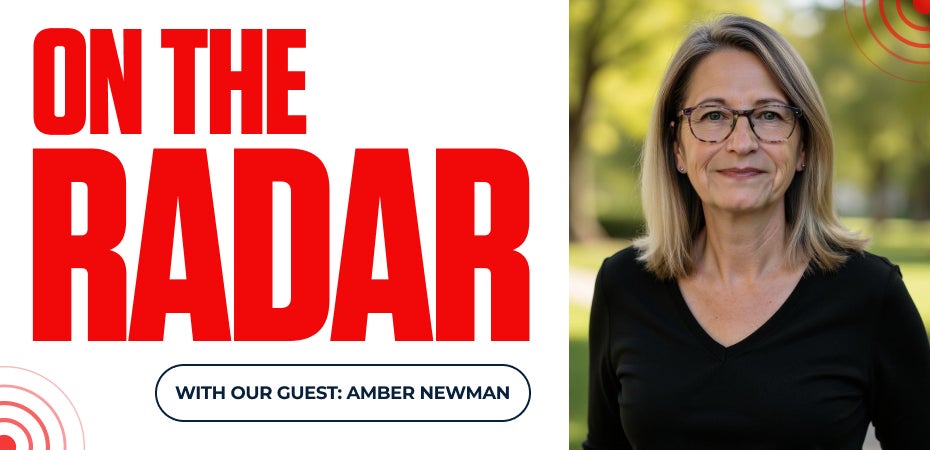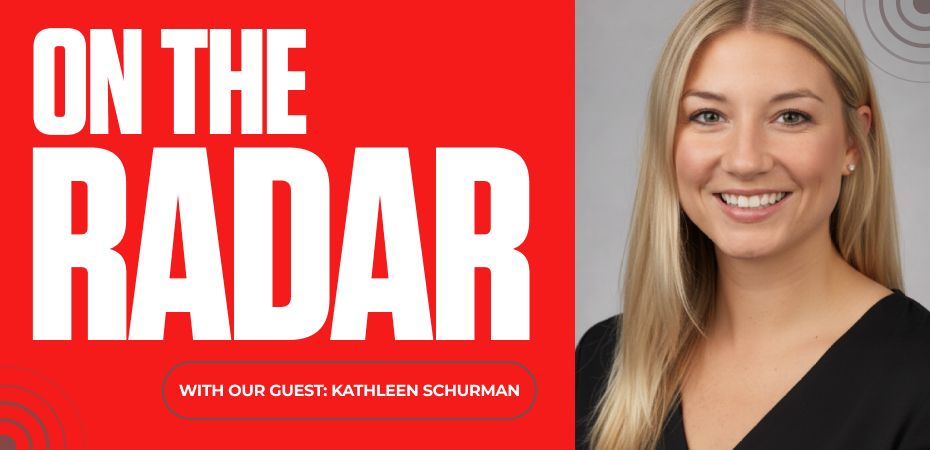November 18, 2025
| On the Radar | by Pete Larmey | Advertising,
Content
How Phone.com’s Amber Newman Turned Paid Search Into a Precision Marketing Engine

Phone.com offers customers a straightforward alternative to complex and costly VoIP systems. It allows them to set up custom business numbers and manage calls, texts, and videos directly from their personal phones, keeping work and personal communications separate.
Amber Newman, Phone.com’s director of marketing, has built a strategy that reflects her company’s simple but powerful solution. With a small, scrappy team and a tight budget, she’s figured out what truly works and is sticking to it.
Here, she explains how Phone.com refined its marketing program to focus on paid search and high-quality content, why understanding your customers’ preferences and habits is everything, and what Oreos can teach us about buyer behavior.
Q: Tell us about your highly targeted, very effective marketing program.
Amber Newman
Our buyers are small business owners who need a business phone number. They don’t need to be convinced; they just need to find the right provider. So they search online for “business phone number,” look at the first couple of results, and make a decision that same day.
If we’re not in those top results, or if our website doesn’t make it easy to buy, we’re out. It’s that simple.
We’re a small team with a limited budget, so every dollar has to pull its weight. After experimenting with various traditional marketing approaches, we quickly realized that our money works best when it’s invested in paid search and website optimization.
Q: What’s the secret to maintaining this level of focus and ensuring it’s effective?
Amber Newman
We run a lot of A/B tests and measure everything, and over time, it’s just become obvious that if it doesn’t tie directly to the way our customers actually buy, or where they’re searching, it’s not worth doing.
We spend a significant amount of time refining both our search terms and on-page content, including blog posts, which are written with SEO in mind. We want to capture prospects wherever they’re looking, whether on Google or AI large language models, which are increasingly becoming go-to sources for our customers.
Beyond that, we pay close attention to two other pages on our website: the homepage and the pricing page. That’s where 90 percent of the decisions happen. If we make those two pages better, everything else improves, too.
Q: You have a great analogy for how you think about buyer behavior—the Oreo analogy. Can you explain that?
Amber Newman
Sure. I think about it this way: if I decide I want Oreos right now, and you send me 25 Facebook posts about Oreos next week, it’s too late. I either bought them or I didn’t.
That’s how our buyers behave. When someone decides they want a business phone number, they’re not shopping for weeks or signing up for newsletters. They just go buy one. So if we’re not there at that exact moment of intent, we’ve lost them.
That’s why we invest where it matters most—getting found in search, and making sure the buying process is fast, clear, and easy once they land on our site.
Q: You mentioned your team is small and efficiency is key. How do you make that work in practice?
Amber Newman
When your budget is tight, efficiency is essential. Every dollar we spend has to produce something tangible. Data helps us see what’s working and cut what’s not.
And we don’t worry about being flashy. Quality and structure matter more than clever campaigns. The clearer and more relevant our content is, the better we perform.
Q: Any advice you can give to your fellow marketers based on your experience and success?
Amber Newman
First, use data to drive your decisions. It’s not glamorous, but it works, and it’s key to understanding your buyer’s actual behavior. Second, build around that behavior. Don’t waste time trying to meet your customers in one place or convince them to make a purchase in a certain way when they clearly prefer another.
For us, the buyer’s motion is simple. They search, they click, they buy. Once we stopped fighting that and started leaning into it, our marketing became a lot more effective and a lot less complicated.
Amber’s focus on doing less to achieve more is what smart marketing is all about. At REQ, we partner with brands that want to do the same—simplify, sharpen, and scale what works. See how at req.co.

